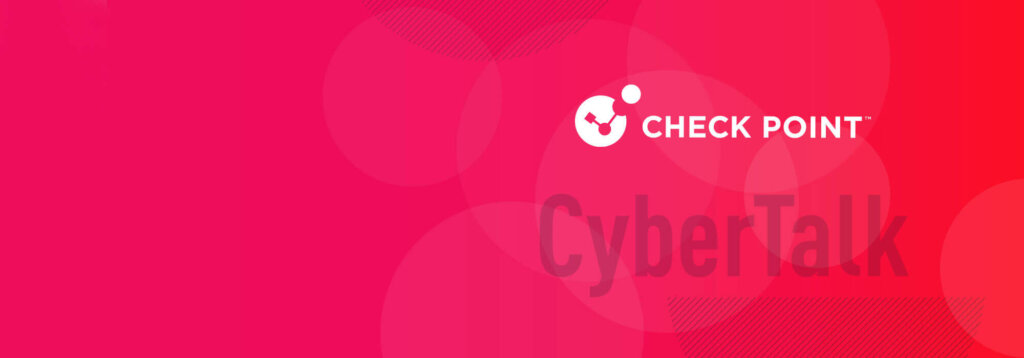Konstantina Koukou is a well-rounded, tech-savvy electrical engineering graduate with a specialization in Information and Telecommunication Systems and a Master’s degree in Business Administration. She has 13 years of experience in different roles, from technical to consulting, and a passion for cyber security.
Today, we’re taking the opportunity to highlight talented women in cyber security, including Konstantina Koukou, a distinguished technical expert and member of the Office of the CTO at Check Point.
In this interview, Konstantina shares several different reasons as to why she enjoys working in the cyber security space – reasons that you may be able to relate to.
Then, she delves into must-know insights and best practices that your organization should implement quickly in order to prevent emerging threats.
Finally, she provides fresh perspectives on how organizations can encourage more women to participate in the field of cyber security. Keep reading for amazing insights.
What do you enjoy most about working in the field of cyber security?
I enjoy it so much because every day is a new day; for all of us working in the industry. The fact that you need to constantly remain informed about new threats, attack methods, and new technologies is very intellectually stimulating. It makes cyber security for many cyber enthusiasts, including myself, an exciting and dynamic area to work in.
Also, in having the role of security consultant, as I do, it feels like you can have a real impact on protecting organizations and critical infrastructure, which can be quite rewarding, to say the least.
Lastly, I also like the social part of the job. I work closely with diverse teams and talented people, fostering collaboration to tackle security issues.
Your insights matter. What general cyber security recommendations do you have for organizations at this time, given what you’re seeing across the current threat landscape?
The threat landscape is evolving and we expect it to become even more challenging with the deployment of AI generated malware on the part of attackers.
There are several things that companies should do to stay protected. First of all, companies should build their own “human firewalls”. Companies need people who are trained, who are aware of the threats and the best practices and who can promote a culture of zero trust within the company.
Secondly, I believe that the current hybrid operating model of companies – given the adoption of cloud, SaaS services and the existence of the remote workforce – needs to be well monitored. When new products and services are introduced, there should not be any cyber security blind spots. Internal processes and tools should be aligned to improve the risk state.
Also, implementing AI in cyber security practices is a straightforward solution that can rapidly accelerate data analysis. Of course, the implementation of up-to-date cyber protections and zero trust principles in the organization goes without saying. Equally important is to develop and regularly test an incident response plan, as to make sure that the company is well prepared to respond and recover from cyber security incidents.
How can both academia and businesses encourage more women to pursue technical careers in cyber security?
It is imperative to bring in more female cyber crime fighters, not only because there is a huge lack of talent to cover the gposting number of job vacancies, but also because it makes no sense for females to still be underrepresented in cyber security and the IT industry as a whole.
Failing to attract women means overlooking valuable skills and perspectives that can make the difference in the constant fight that is cyber security.
To achieve gender parity, the industry needs to address certain stereotypes. From an early age, girls need to interact with technology and to participate in S.T.E.M. programs, while schools need to foster digital literacy. Being called a nerd or geek is de-motivating for some girls (although for me it worked the opposite way : ) And to complement this, we need to create a supportive environment at home, school and/or work that focuses on the learning experience and motivation through curiosity.
Undoubtedly, there are many female role models in our industry that need to be promoted among a more general audience. Finally, in addition to the internships and mentoring programs that are always useful – either offered by educational institutes or businesses, – I think it also makes sense to recognize the current female employees organizations have.
Companies should invest in their employees, to allow them to progress, and investigate new roles, even if at first glance they don’t look like the perfect fit.
